

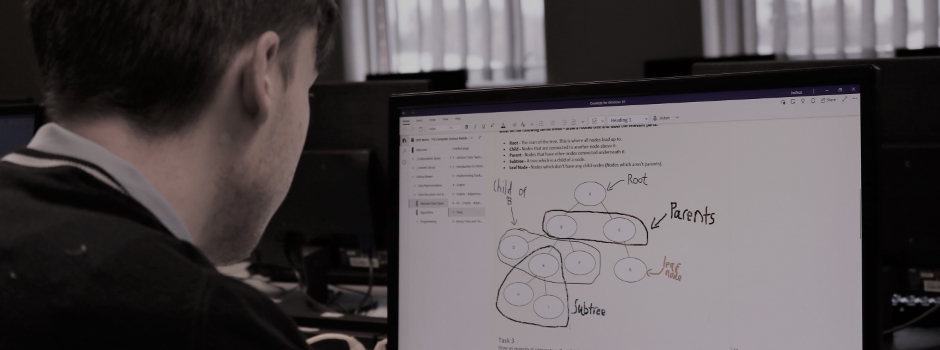










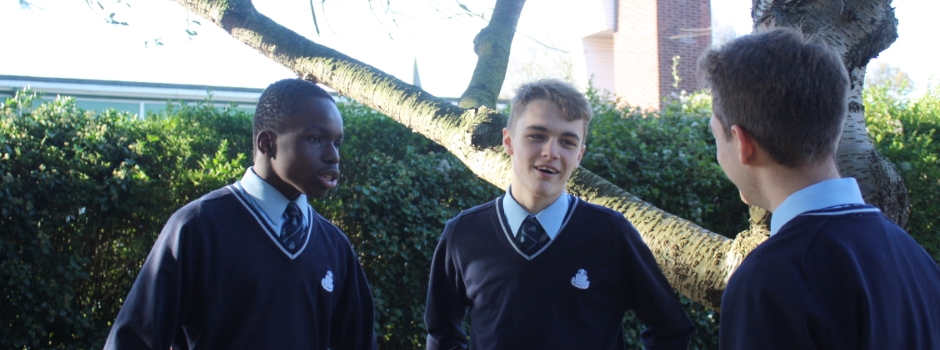
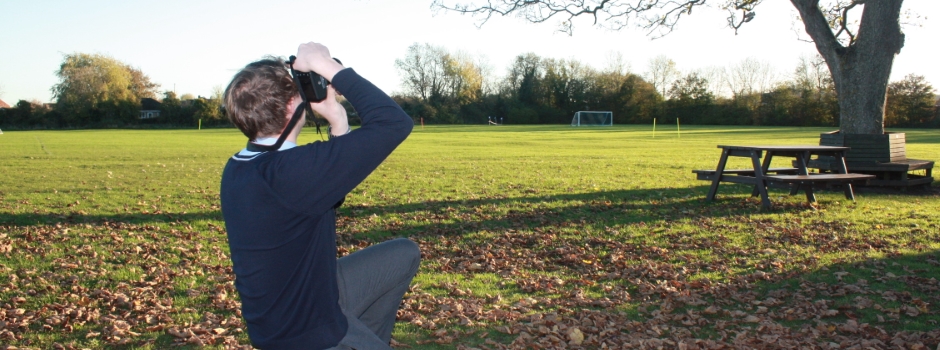









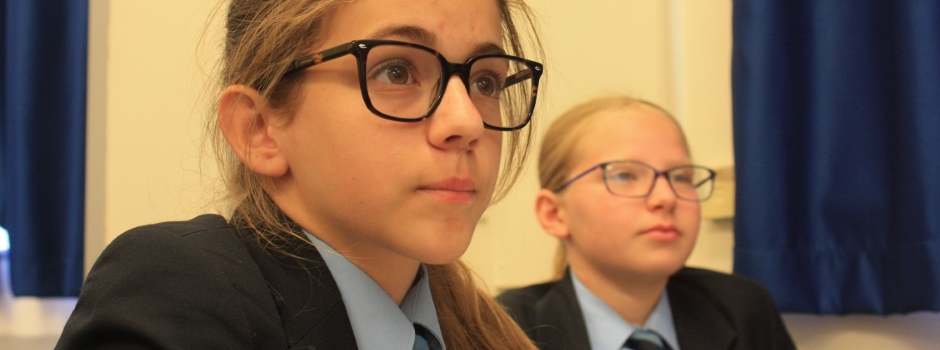
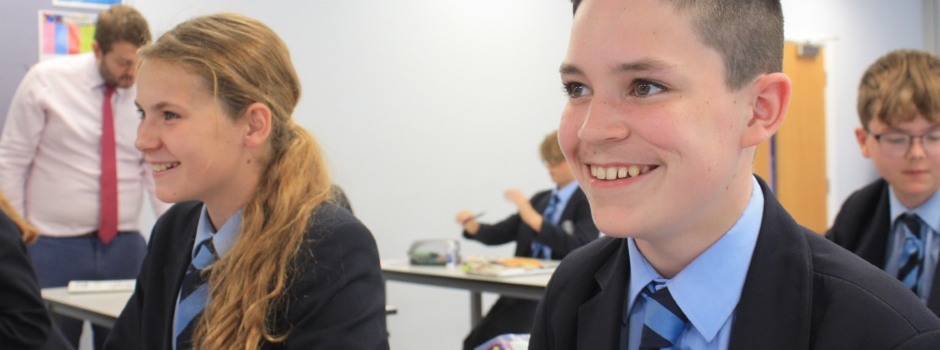







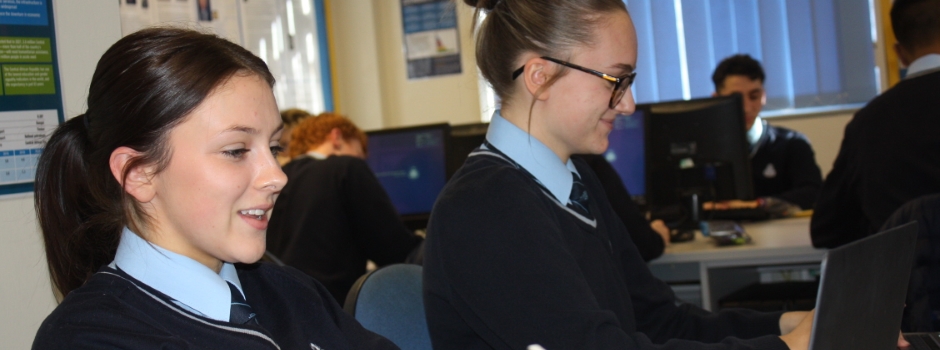





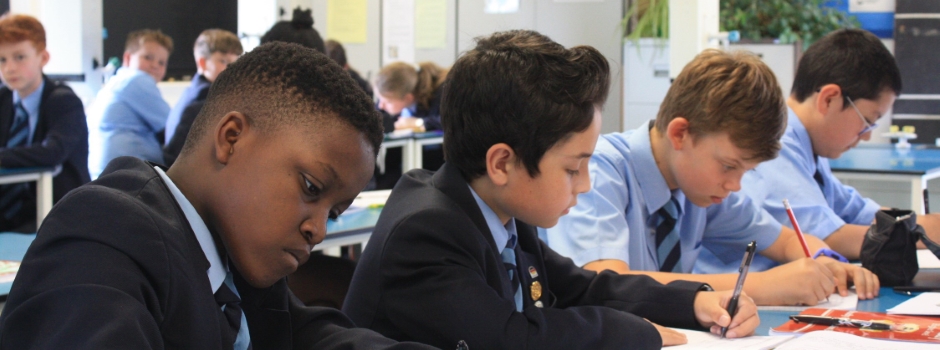




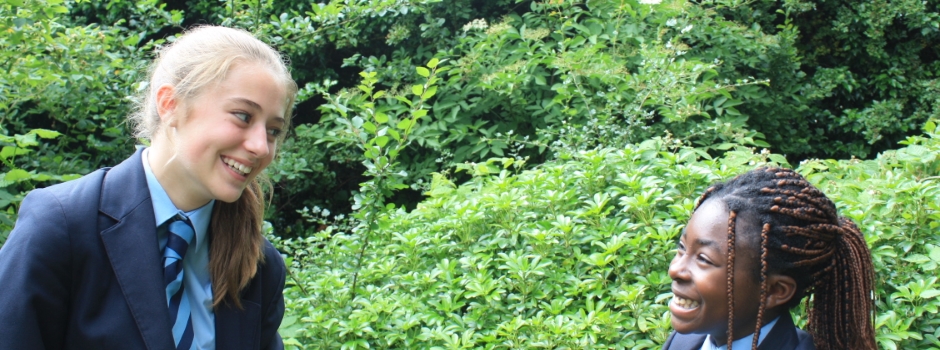
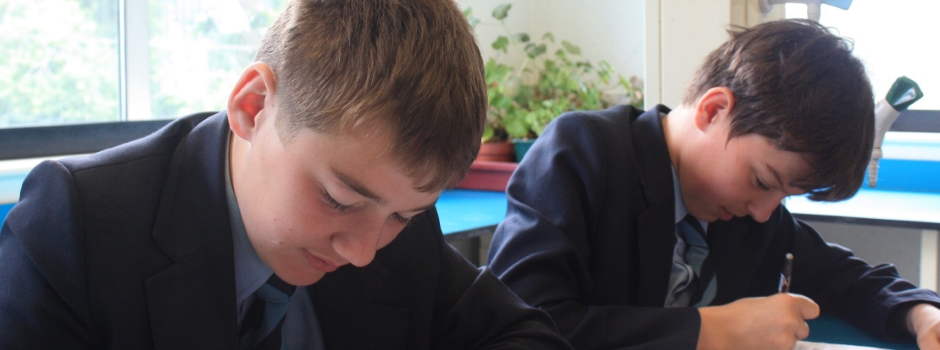



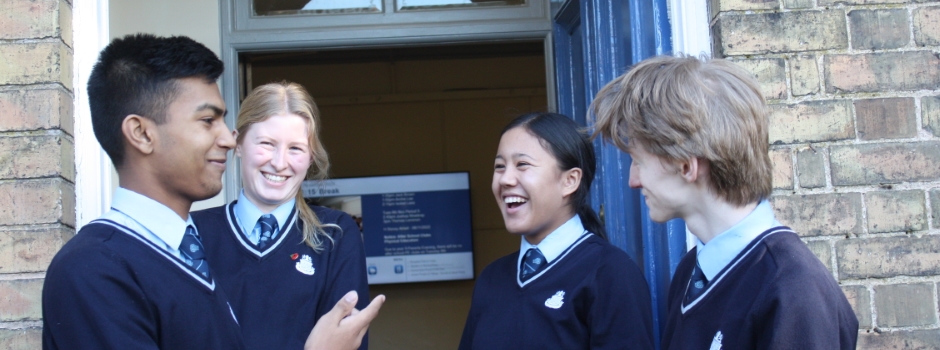


"...exemplary standards demonstrated throughout the whole environment."
History Dept - Curriculum on a Page
Showing the curriculum by subject
History
Curriculum Details - 2023/2024 (Current)
| Year | Term 1 | Term 2 | Term 3 | Term 4 | Term 5 | Term 6 |
| 7 | Start with a short introductory unit focusing on core skills that will be covered in the year; chronology, periods/units of time, source types and use as well as source analysis and evaluation. Content focuses on medieval Britain and starts with an evaluation of the claims to the throne in 1066. | The events of 1066 will be covered, focusing on the reasons why the Normans were successful in the battle of Hastings. The Norman use of terror to gain power after Hastings will be considered, with a special focus on castles. Students will be taught how to evaluate castle designs. | The medieval theme continues with a study on the importance of religion, by focusing on the issues surrounding the murder of Thomas Becket. This leads to a wider investigation into the challenging of royal power culminating in the Magna Carta. | The term looks at the social issues of medieval Britain, with a case study of the Bubonic Plague outbreak in 1349. This will involve a study of its causes, the symptoms, contemporary treatments and its wider impact. | The last aspect of medieval Britain concentrates on the Peasants' Revolt, with a focus on its causes, the events and its impact on socio-economic and political aspects of Britain. | A study of the early Tudor period, 1485 to 1553, with an emphasis on the Reformation and the reasons behind it. How the church changes will be analysed and students will be expected to learn the key features of Tudor chronology (such as who, length of reign, marriage and siblings). |
| 8 | The late Tudor period, looking at the controversy surrounding Mary I. A special and obvious focus on Elizabeth I, concentrating on her weaknesses in 1558 and how she overcame them, with special attention on the Armada. | The Stuart period is investigated with coverage of the gun powder plot and the causes of the English Civil War. Students expected to understand how both Parliament and Charles I were responsible for causing the war. Key event is re-enacting the trial of Charles I and Henrietta Maria. | Complete the study of the Stuart period by studying the Inter-regnum (and views of Cromwell), the Restoration and the Glorious Revolution. Start the period 1750-1900 by looking at agricultural changes and the replacement of the Domestic System with the Factory System. | Industrial revolution continued with focus on the development of industrial cities and the importance of transport changes. This leads into a review of the British Empire, where it was, its impact on India and its relationship with the Atlantic slave trade. | Focus on the First World War, looking at its causes, 1914 recruitment and the development of trench warfare on the Western Front; special interest on living conditions in the trenches and the reasons why the First Day of the Battle of the Somme failed. | Final unit is on World War Two. The key events studied are the causes, blitzkrieg in Poland, the Battle of Britain and the invasion of Russia. A look at the Home Front is carried out, leading to a series of lessons on the Holocaust. The concluding section looks at changes in the post-war period. |
| 9 | GCSE American West; 1835 - 1895; focus on the life on the Plains Indians; how they survive, the importance of the Buffalo and how they adapt to a nomadic lifestyle. Then study the reasons why migrants moved westwards, with a focus on Manifest Destiny and the importance of the Oregon Trail | GCSE American West, 1835 - 1895: study of the experiences of the early migrants, especially the Donner Party, the Mormons and the Gold Rushes. The reasons for tension between the migrants and Plains Indians will be studied. The Impact of the American Civil War on migration will then be studied. | GCSE American West, 1835 - 1895; focus on the development of the west by migrants. The topics will be the development of farming, the start and expansion of the cattle industry, and the end of the Open Range. Will also study the impact of rail roads on migration, settlement and the Plains Indians. | GCSE American West, 1835 - 1895; focus on the impact of Government policy on the Plains Indians (inc. Grant's Peace Plan, the Indian Wars of 1862 - 1868 and the Battle of Little Big Horn). Will study law and order issues covering mining towns to the Johnson County War. | Anglo-Saxon & Norman England, 1060 - 1089; focus on life in Anglo-Saxon England, inc. societal structure, the church, local government, and the uprising of Tostig in 1065. Following-on, the death of Edward the Confessor and the competition over the succession. | Anglo-Saxon & Norman England, 1060 - 1089; focus on the succession crisis of 1066, (the battles, and the eventual submission of the earls). Then, will study the early Norman period with an emphasis on the Marcher Lords, the building of castles and the revolts (1068-1071). |
| 10 | Anglo-Saxon & Norman England, 1060-1089; focus on continued opposition to William (the Harrying of the North and 1075 Revolt). Then study the Norman process of occupation, emphasizing creation of the Feudal System, church reforms and centralisation of power. | Anglo-Saxon & Norman England, 1060 - 1089; continue on the occupation with focus on the Domesday Book, demesne and sheriffs. Then follow-on with the end of William's reign; looking at his inheritance, the relationship with his son, Robert and the rebellion of 1088. | Weimar and Nazi Germany, 1918 - 1939; focus on the legacy of World War I, the political revolts and the impact of hyperinflation. Then study Stresemann's solution to these crises and how life changed in the Weimar period (especially for women). | Weimar and Nazi Germany, 1918 - 1939; the early years of Hitler's career (1918 - 1920), and the development of the Nazi Party (1920-23) and the failure of the Munich Putsch. Then study the lean years (1924-29) and how Nazis worked towards an electoral victory. | Weimar and Nazi Germany, 1918 - 1939; the growth of the Nazi Party (1929-32) and how Hitler became Chancellor (Jan. 1933) and consolidated his hold on Power (1933-34). Focus on the development of the Police State and the effectiveness of Nazi propaganda. | Weimar and Nazi Germany, 1918 - 1939; how the Nazis silenced opposition in Germany amongst the young and within the church. Study Nazi policies (youth, women and the workers) and assess how better off Germans were. Look at minority persecution. |
| 11 | Medicine through Time, 1250 - present; Section A topics; medical treatment and developments during WWI. Then Section B topic, on causal theories, medical treatments and preventative measures during the medieval period 1250-1500. | Medicine Through Time, 1250 - present; Section B topics on casual theories, medical treatments and preventative measures in the Renaissance period (1500-1750) and the 18th and 19th centuries. Case studies on the Black Death & Plague and surgery. | Medicine Through Time 1250 - present; Section B topics on casual theories, medical treatments and preventative measures for the period 1900 to the present. Case Studies Fleming, Florey and Chain. | Finish off the period 1900 to the present, with special focus on how the diagnosis and treatment of lung cancer has developed. Revision will then start based on programmes worked out specifically for the year group/classes. | Main revision period, with emphasis on exam style questions, expectations of each type and practising planning and answering. | Summer Work set for Russian Revolution Unit - students are given a list of key terms which they need to research meanings for. |
| 12 | British Experience of Warfare - Breadth study on army and naval reforms and growing importance of civilians in warfare. Russia - Nature of the Tsarist regime, opposition and its lack of success and the 1905 Revolution | British Experience of Warfare - Depth Study on Napoleonic Wars; the importance of Wellington, Nelson and economic growth. Russia - Tsarist recovery, Stolypin's repression and reforms, impact of WW1 and the February Revolution | British Experience of Warfare - Depth Study on the Crimean War; emphasis on army capabilities, the role of early reporting and the work of Nightingale and Seacole. Russia - Provisional Government and the Soviet, Lenin's return and crises facing the Government | British Experience of Warfare - Depth Study on the Second Boer War, focusing on public reaction and the contributions of military commanders (e.g. Roberts). Russia - October Revolution, Bolshevik 1st year in power, repression and economic policies | British Experience of Warfare - Depth Study on the Great War; emphasis on development of stalemate, the role of Sir Douglas Haig and the importance of propaganda. Russia - Civil War and foreign intervention, revision for exam | British Experience of Warfare - Depth Study on the air war during the Great War. focusing on its growing importance and influence. Stuarts - Politics 1624-1660 (Charles I, Civil War, Interregnum and the Restoration) |
| 13 | Coursework - 1980-1991, the End of the Cold War. Teaching component giving an overview of issues, interpretations and events. Stuarts - Restoration period then religion (Church of England and dissenters) | Coursework - 1980-1991, the End of the Cold War, students carry out individual research and write their first draft. Stuarts - Religion (fear of Catholicism) then Society (population, social structure and radical groups) | Coursework - 1980-1991, the End of the Cold War, students respond to first draft feedback and complete final draft and associated documentation. Stuarts - Economy (agriculture, cloth trade, banking and insurance, empire) | British Experience of Warfare revision, with a focus on core exam paper skills and salient content. Stuarts - Glorious Revolution interpretations section | British Experience of Warfare revision continues, consolidating core skills and their application. Stuarts & Russia; revise through the two units in this order. | Study Leave |